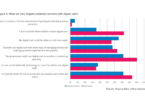Today the Hong Kong Monetary Authority (HKMA) announced an expansion of its role in the pilots for China’s central bank digital currency (CBDC), the eCNY. It announced that Hong Kong residents can top up their eCNY wallets using Hong Kong’s Faster Payment System (FPS). That functionality was first made available during last year’s Asian Games, but the scope might have been limited to only these tourists and certain banks. Now 17 Hong Kong banks support top ups via FPS.
The FPS functionality supports the ability for Hong Kong residents to create eCNY wallets while still in Hong Kong.
Eddit Yue, CEO of the HKMA noted that Hong Kong has “become the first place outside the Mainland that enables its residents to set up e-CNY wallets locally.” He added, “We will continue to work closely with the PBoC (People’s Bank of China) to gradually expand the applications of e-CNY, enrich the range of functionalities of the e-CNY wallet available to Hong Kong residents and step up efforts in promoting the acceptance of e-CNY by more retail merchants in the two places.”
Preventing RMB dollarization in Hong Kong?
Our understanding is that the primary purpose of the cross broder collaboration is to enable visitors in either direction to to use China’s CBDC, and make cross border e-commerce purchases. As the digital yuan gains acceptance in Hong Kong retail outlets and its citizens start creating eCNY wallets locally, it raises an important question. What’s to prevent Hong Kong citizens from using the digital yuan for local retail payments? In other words, it could encourage the dollarization of Hong Kong.
Perhaps that’s one reason why Hong Kong users cannot use the eCNY for person-to-person payments. Additionally, there are currently limits on the balances. A wallet cannot hold more than RMB 10,000 ($1,384), the limit per transaction is RMB 2,000 ($277) and the cumulative limit is RMB 50,000 ($6,921).
These limits are in place because currently users only require their Hong Kong mobile phone numbers to create a wallet. HKMA said it’s working with China’s central bank Digital Currency Institute to add real name identification. This will allow the wallets to support larger balances and payments.
Meanwhile, the HKMA is involved in a wide array of digital currency initiatives, including the second phase of its retail eHKD trials and a new wholesale CBDC pilot, Project Ensemble, that will support tokenized deposits and securities settlement. Plus, it launched a stablecoin sandbox.






